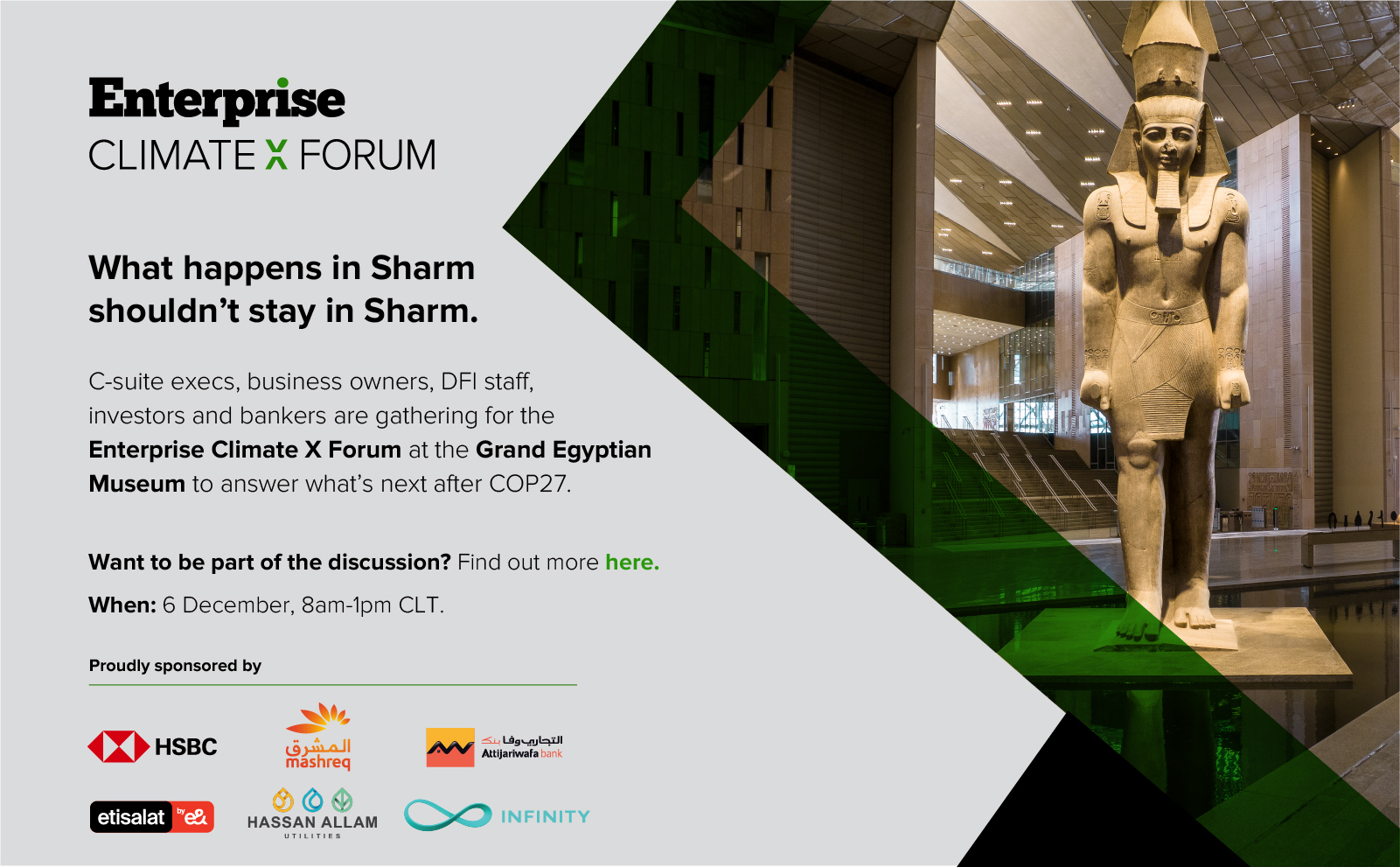- COP27 ends with landmark agreement to compensate vulnerable countries for the climate crisis. (COP Watch)
- Lekela earmarks USD 2 bn to grow its Egypt renewables portfolio. (Energy)
- Infinity, Hassan Allam and Masdar to start work on 10-GW wind farm in 2024. (Energy)
- We could see some final contracts being signed for green hydrogen projects by 2Q 2023, says El Said. (What We’re Tracking Today)
- Central bank getting out of the subsidized loans game, passes responsibility to fiscal side of the house. (Policy)
- GB Auto approves plans to sell MNT stake to Chimera Investments. (M&A Watch)
- SFE pre-IPO roadshow on ice for the coming weeks. (Privatization Watch)
- A breakthrough moment? El Sisi, Erdogan shake hands on sidelines of World Cup opening ceremony. (What We’re Tracking Today)
- The road to COP28 starts here. (A Message From HSBC)
- How leadership- and service-oriented residential school Manara plans to weave itself into Egypt’s educational fabric. (Blackboard)
- Investors are rediscovering their appetite for the riskiest emerging-market debt. (Planet Finance)
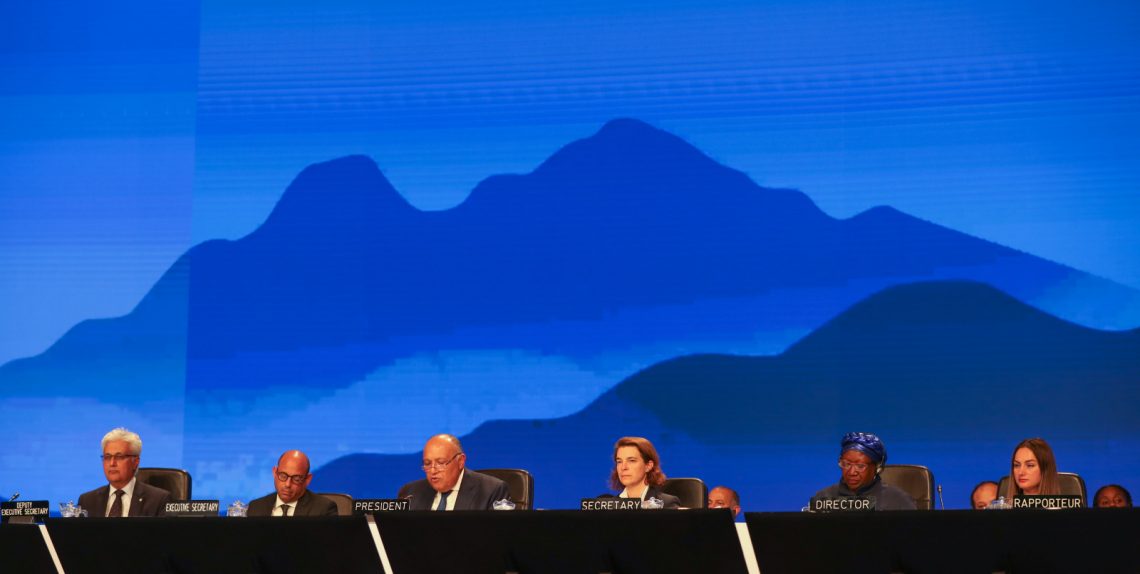
Monday, 21 November 2022
AM — COP27 ends with landmark agreement to compensate vulnerable countries for the climate crisis
TL;DR
WHAT WE’RE TRACKING TODAY
Good morning, friends, and happy End of COP27. We have a roundup this morning in the news well, below, along with the final bits of news out yesterday. Enterprise Climate has deeper dives for those of you who need to get into the details.
Speaking of COP, before we get underway with the rest of the news:
The Unsung Hero of COP27 Award goes to Amb. Mohamed Nasr, our lead climate negotiator, whose smart, persistent work paid off as he and his team delivered a loss and damage fund for vulnerable emerging markets even after rich nations publicly declared there was no way it was going to happen.
The Overlooked News of COP Award goes to the Global Renewable Hydrogen Forum, which President Abdel Fattah El Sisi and Belgian PM Alexander De Croo launched early in the summit. The body aims to become the hydrogen industry’s equivalent of the East Mediterranean Gas Forum. The forum could ultimately serve as a venue for Egypt and other emerging players to argue for wealthy countries to provide subsidies for our green hydrogen industries. That would go a long way toward evening-out the distorting effects of the subsidies now promised to US producers under the Biden administration’s Inflation Reduction Act.
From the Dept. of We Can’t Get a Break: We’ve spoken with just over a dozen senior Egyptian execs about the organization at COP27 and … it seems it was not even a quarter of the [redacted] show portrayed on social media and in some Western media outlets. Broken sewage pipe? Fixed on day one. Expensive water and food? “Unlike Glasgow, at least there was food.” Long wait for transport? “I would wait an hour, hour and a half at COP26.” Queues to enter and exit? “Shorter and smoother than last year.”
We, as a people, love to complain about our own inability to deliver a well-organized event. If folks we consider both friends and “the usual suspects” in the complaints department think it went well … maybe that’s worth considering?
ICYMI- Did you miss any of our Climate CEO Poll interviews? Catch up here.
- Ahmed El Hoshy, CEO of OCI NV and Fertiglobe.
- Harry Boyd-Carpenter, managing director of climate strategy and delivery at EBRD.
- Joel Van Dusen, group head of corporate and investment banking at Mashreq.
- Karim Moussa, head of private equity and asset management operations and co-CEO of EFG Hermes’ investment bank, and CEO of Vortex Energy.
- Mohamed Saad, President and CEO for NEA at Signify.
- Osama Bishai, CEO of Orascom Construction.
- Sebastien Riez, Northeast Africa and Levant Cluster President for Schneider Electric.
- Sherif El Kholy, partner and the head of MENA at Actis.
WATCH THIS SPACE- Expect final agreements on green hydrogen with leading global power companies to be signed in 2Q 2023, Planning Minister Hala El Said told Al Borsa yesterday.
REMEMBER- Egypt signed framework agreements with international companies for nine green hydrogen and ammonia facilities on the sidelines of COP27 last week. The facilities combined would need as much as USD 83 bn in investment.
Expect most of these to be delivered: The minister said she expects most of the companies to end up signing final contracts. Final agreements would be signed after companies complete feasibility studies and reach a final investment decision.
And another framework agreement is in the works: El Said revealed that a framework agreement with a consortium comprising two international firms would be signed in the upcoming period.
SFE to offer desalination projects to investors: The Sovereign Fund of Egypt (SFE) will present investment opportunities in water desalination projects to investors in the upcoming period, El Said told the newspaper.
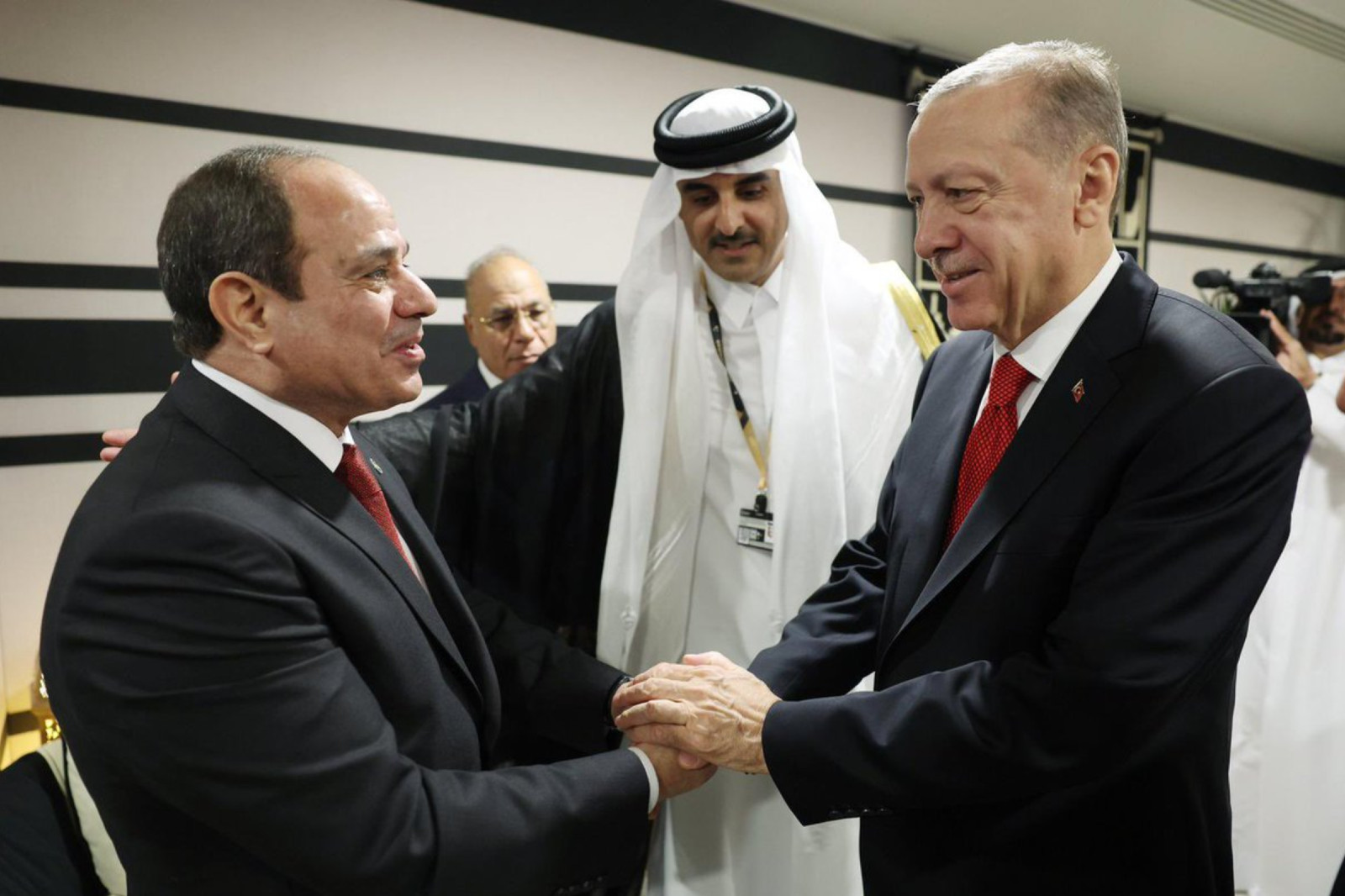
Football diplomacy: President Abdel Fattah El Sisi shook hands with Turkish counterpart Recep Tayyip Erdogan for the first time in nine years (maybe ever?) yesterday during the opening ceremony of the World Cup in Qatar, according to pictures provided by Turkey’s state-run Anadolu Agency. Anadolu said Erdogan “held brief conversations with Palestinian President Mahmoud Abbas, Egyptian President Abdel Fattah El Sisi and Jordan’s King Abdullah” during a reception hosted by Qatari Emir Sheikh Tamim bin Hamad Al Thani. The meeting got all of Egypt’s talking heads talking last night, which we recap in Last Night’s Talk Shows, below.
Could the handshake signal a thaw in ties between the two countries after nearly a decade of hostility? Officials from both countries began consultations last year to restore diplomatic ties, which have been severed since the Ikhwan was removed from office in 2013. Talks were suspended after only two rounds after the two sides failed to see eye to eye over Ankara’s role in Libya, Foreign Minister Sameh Shouktry told Al Arabiya in an interview last month.
HAPPENING TODAY-
It’s day two of the World Cup (all times CLT):
- England v Iran (15:00)
- Senegal v Netherlands (18:00)
- USA v Wales (21:00)
On the legislative agenda: MPs will discuss and vote on amendments to the Telecommunications Act, and a loan agreement between Egypt and the European Bank for Reconstruction and Development (EBRD) for the rehabilitation of Cairo Metro’s Line 2.
TREMOR WATCH– A magnitude 5.8 earthquake off the coast of Greece’s Crete in the early hours of today was felt in parts of Egypt, according to a statement by the National Research Institute of Astronomy and Geophysics. There were no reports of casualties or major damage due to the quake in Egypt, the authority said.
HAPPENING THIS WEEK– The Local Development Ministry will sign two agreements to build new recycling plants and landfill sites tomorrow, Al Borsa reported yesterday. The contracts, worth a combined EGP 4.2 bn, will see the construction of 13 facilities to recycle and process municipal waste and nine new landfill sites. The newspaper didn’t report which companies are in line for the contracts.
|
GOOD NEWS FOR THE EGP?
Good news for the global economy: The greenback’s relentless bull run has begun to reverse. The USD has fallen more than 4% against a basket of six currencies so far this month as positive inflation data raises expectations that the Federal Reserve will begin to scale back its interest rate hikes, according to Refinitiv data picked up by the Financial Times. Tightening financial conditions have pushed the USD to its highest level in 20 years, piling pressure on a global economy already under threat from high inflation and a wave of debt crises. But the rally has lost steam this month on signs that US inflation could be easing, putting the currency on course to suffer its biggest monthly drop since September 2020.
Is the greenback peaking? Some analysts feel confident enough to call the peak. “We expect the USD’s powerful climb over the past year to reverse in 2023 as the Fed’s hiking cycle comes to an end … It has peaked,” HSBC foreign exchange strategists wrote in a note.
That could be good news for the EGP, which has continued to slide steadily against the greenback. It’s down 1.2% this month against the USD and has thus fallen 24.1% against the USD since the central bank floated the currency at the end of October. The EGP was at a record low of 24.5364 yesterday.
Are you a C-suite executive or investor and want to attend our Enterprise Climate X Forum? Drop us a note on climatexrsvp@enterprisemea.com to signal your interest, letting us know your name, title and where you work.
The event takes place on Tuesday, 6 December 2022 at the Grand Egyptian Museum.
PSA- The deadline to apply for the Chicago Booth Executive Program in El Gouna is Sunday, 27 December. The two-week program, which kicks off in March 2023, offers executives from Egyptian public and private sector the skills to help them “become a better leader for your organization and support Egypt’s growth in the years ahead.”

*** It’s Blackboard day: We have our weekly look at the business of education in Egypt, from pre-K through the highest reaches of higher ed.
In today’s issue: Enterprise interviews Manara School Head Peter Saliba, who spoke to us about the new residential school’s plans and goals and how it plans to build its legacy in the educational sector through being a school “for the nation” by opening its doors to students regardless of their socioeconomic background.
Enjoy renting with home comfort, privacy, exclusive privileges, and tailor-made packages for an unforgettable guest experience. A signature collection of handpicked serviced villas, chalets, apartments, and studios to transform your vacation into an exceptional experience, and to discover the magic of Somabay in luxury bliss. For booking inquiries, contact us by phone at +20155 600 5693, by email at info@stayr.somabay.com, or through our website holidays.somabay.com
COP WATCH
Landmark loss and damage pact is the centerpiece of COP27 for emerging markets

Delegates from nearly 200 countries left COP27 yesterday with a landmark agreement to create a loss and damage fund to help vulnerable countries cope with climate disasters triggered by richer countries’ emissions, the COP27 presidency said in a statement (pdf). The agreement came after a long stretch of tense negotiations that saw rifts between developed countries including the EU and the US, and other negotiators over issues like emissions reduction, the continued burning of fossil fuels, and the tar 1.5C target.
The agreement was struck at dawn on Sunday during a plenary session that saw COP27 President Sameh Shoukry read through the final agenda items to no objection from negotiators, Reuters reported. The summit, which officially ended on Friday, dragged on for an additional day and night as negotiators struggled to settle differences.
“A delicate balance”: “I consider the text to be adopted to be a reflection of both a delicate balance that responds to the interests of all of us, represented in this conference, and also a manifestation of the highest ambition that can be reached at this point in time,” Shoukry said during the closing session (watch, runtime: 5:10:10).
The historic loss and damage fund will see developed countries pledge funds to “save lives and livelihoods from climate change related disasters” in climate-affected countries, the statement said. The fund will be targeted toward countries deemed most vulnerable against climate change, delegates said. Countries will need to identify “new sources of financing” for the fund, officials said, according to the Wall Street Journal. Developed countries want China, oil-rich Persian Gulf states and other higher-income countries in the developing world to contribute to the fund.
The caveats: Most of the details on how the fund will operate were left to be ironed out over the next year leading up to COP28, the WSJ quotes officials as saying. A transitional committee with representatives from 24 countries is expected to work out the details, including who should pay into it, and the role of the fund in relation to the never fulfilled and now dated pledge to provide developing countries with USD 100 bn a year for climate mitigation.
Mitigation ≠ loss and damage: The USD 100 bn pledge on which developed countries failed to deliver addresses climate mitigation — or reducing emissions. Loss and damage is the climate finance offered to developing countries that have faced irreversible loss and damage on the back of climate disasters including storms and floods — an issue that must be addressed before these countries can begin to think about mitigation.
Shoukry was pleased with the outcome of the talks: “We leave Sharm El Sheikh with renewed hope in the future of our planet, with an even stronger collective will and more determination to achieve the temperature goal of the Paris Agreement,” he said. “We’ve just adopted the landmark Sharm El Sheikh Mitigation Ambition and Implementation Work Programme that will hugely contribute to keeping 1.5 within reach, and I trust that we all know what needs to be done to safeguard 1.5 and ensure that we never go beyond.”
Some wanted to see more on the emissions reduction + fossil fuel phase out front: COP26 President Alok Sharma criticized this year’s presidency for overlooking the steps taken last year and failing to “boost” those efforts. “Emissions peaking before 2025, as the science tells us is necessary, not in this text,” Sharma said. “Clear follow through on the phase down of coal. Not in this text. A clear commitment to phase out all fossil fuels. Not in this text. And the energy text weakened in the final minutes.” EU climate policy chief Frans Timmermans shared the same reservations — as did most negotiators from the EU — over the text being “not enough of a step forward for people and planet.”
The main criticism: A proposal backed by India, the EU and other countries to phase down use of “all fossil fuels,” was absent from the final text — with the text instead carrying forward the agreement made at COP26 to take steps towards the phase-down of coal and the phase-out of fossil fuels. A reference to “low-emissions energy” in the text was also criticized as opening the door to the use of natural gas. European MEPs went as far as to say that this was a “lost climate year,” according to a statement, while noting that the multilateral process was fruitful in the goal of achieving consensus on the issue of loss and damage.
Many are pointing the finger at oil producers + large emitters: Germany’s foreign minister Annalena Baerbock said the conference had been “stonewalled by a number of large emitters and oil producers,” the Financial Times reports. “Everyone should be expected to do better, but countries were constrained by financial ability,” Egypt’s COP27 ambassador Wael Aboulmagd said in response to the criticism.
The debate on fossil fuels has been a long time in the making, with developed countries increasingly pushing for a transition away from the energy source. Developing countries in Africa and the Gulf have both been vocal supporters of a slow, low-emission transition to renewables that relies on more natural gas in order to meet energy demands, as renewables remain intermittent.
ENERGY
Lekela earmarks USD 2 bn to grow its Egyptian renewables portfolio
Renewable power company Lekela Power is looking to invest USD 2 bn in Egypt over the next four years as part of a USD 6 bn plan to quadruple its energy production capacity to 4 GW from a current 1.1 GW, CEO Chris Antonopoulos told Bloomberg Asharq on the sidelines of COP27.
In detail: One-third of the USD 6 bn will go to Egyptian projects, another third to South Africa, and the rest to other African markets, Antonopoulos said. The company generally looks to finance some 25-40% of its projects through the sale of ownership stakes, he added, with the remainder coming from banks and long-term multilateral lenders like the European Bank for Reconstruction and Development (EBRD) and the International Finance Corporation (IFC).
More wind farms in the pipeline? Lekela wants to increase its Egyptian wind energy production by building more wind farms, this time on the west of the Nile, the CEO said, adding that the company is looking into land use rights. Lekela kicked off operations for its 250-MW wind farm in West Bakr late last year.
Lekela is welcoming new owners soon: The fresh investments are part of plans to expand Lekela’s operations after it is acquired by Egyptian renewables player Infinity and Africa Finance Corporation (AFC), who over the summer signed an agreement to purchase 100% of the company. The acquisition is expected to close in January, Infinity co-founder and chairman Mohamed Ismail Mansour told Bloomberg.
“The acquisition will increase the company’s focus on the Middle East in general and Egypt in particular, as we look forward to enter new sectors such as green water desalination and green hydrogen production, hopefully in partnership with the Sovereign Fund of Egypt,” Antonopoulos said.
We have a ton of renewables projects in the making: Egypt signed initial agreements for green hydrogen and wind power projects worth up to USD 119 bn during COP27, including a combined 29.5 GW of wind power projects and nine green hydrogen and ammonia facilities.
MEGA WIND FARM TO BREAK GROUND BY 2024-
The consortium of companies building a 10-GW onshore wind farm in Egypt will begin construction in 2024, Bloomberg reported yesterday. The wind farm will be one of the largest in the world and will be fully operational by 2030, said Mohamed Ismail Mansour, chairman of Infinity Power, which is working on the project with partners Hassan Allam Utilities and Masdar.
Putting this in perspective: This one farm is 3x the size of all the renewable power generation capacity Egypt presently has in place.
Finding land: The companies hope to acquire land for the project this year and are looking at a plot near Minya and another in Aswan, with both areas having wind speeds of 10 meters per second, Mansour said. The government will purchase the power generated from the wind farm, with exports possible through existing and planned cables to Europe, Saudi Arabia, Sudan and Libya, he added.
Refresher: Our friends at Infinity Power and Hassan Allam Utilities together with longtime partner Masdar signed an agreement during COP to build the farm. The plant — which will cost at least USD 10-12 bn to build — will have the capacity to produce nearly 48k GWh of clean energy a year.
POLICY
Central bank to end support for subsidized loans

The Central Bank of Egypt is going to stop providing funding for subsidized loans and pass the responsibility to the housing, finance and tourism ministries, under a decree issued by Prime Minister Moustafa Madbouly in the Official Gazette yesterday.
Refresher: For the past couple of years, the CBE has run initiatives designed to improve access to finance for key areas of the economy. Tourism companies, industrial and constuction companies, low- and middle-income homebuyers, farmers wanting to invest in water-efficient irrigation systems, and people applying for the government’s dual-fuel vehicle swap scheme have all been able to take out loans from commercial banks at preferential interest rates subsidized by the central bank.
Now the ministries are on the hook: The housing, finance and tourism ministries will now be responsible for funding the subsidized rates. The Finance Ministry has been tasked with running an audit on the initiatives and making a decision on how (or whether) to take them forward without CBE support.
Mortgage support cut back: The EGP 50 bn program launched in 2020 to help middle earners get mortgages has been reduced to EGP 15 bn, according to the decision.
We saw this one coming: In the weeks leading up to last month’s loan agreement with the IMF, reports in the press had suggested that ending subsidized loans was one of the conditions attached to fresh financing. Three government sources had told Bloomberg Asharq that the Fund was pushing the central bank to “unify interest rates” and end the low-interest loans. Was this a condition of the IMF pact? We’ll find out in December when the body’s executive board is scheduled to meet to approve the agreement with Egypt.
No backsliding allowed: All entities, including the CBE itself, will be banned from financing new initiatives or amending existing ones that would increase burdens on public finances without cabinet approval.
PRIVATIZATION WATCH
SFE pre-IPO roadshow on ice for the coming weeks

A planned roadshow for the Sovereign Fund of Egypt’s pre-IPO fund by the Sovereign Fund of Egypt (SFE) has been pushed to late December or the beginning of January, Planning Minister Hala El Said said in an interview with Al Borsa. The roadshow was planned for the end of November but was delayed due to COP27, El Said said, without providing further details.
We don’t have names yet: The fund, which was announced in September to market state-owned companies to regional wealth funds, currently includes five companies, El Said said, remaining tight-lipped on the names of the companies. The minister said initially that by the middle of October assets worth up to USD 3 bn would be transferred to the fund and that the government would announce the names of the companies, but one month on we remain none the wiser. Press reports have suggested that the Siemens-built combined-cycle power plant in Beni Suef could be destined for the fund but this has not been confirmed.
Why this is important: The pre-IPO fund is one of the key mechanisms by which the government says it will try to relaunch its largely stalled privatization program. The fund will offer stakes in state-owned companies to strategic investors and sovereign funds ahead of listing them on the bourse, bringing in as much as USD 6 bn. The fund plans to market several state companies — including the military-owned firms Safi and Wataniya — to strategic investors ahead of IPOing them on the EGX. Neither Safi nor Wataniya will make their EGX debuts this year but could see a private stake sale before year end.
M&A WATCH
GB Auto okays MNT stake sale after accepting fair value study

GB Auto approves MNT stake sale: GB Auto’s board has greenlit plans to sell a 7.5% stake in MNT Investments to Abu Dhabi-based investment firm Chimera Investments after approving the results of a fair value study (pdf), it said in an EGX disclosure (pdf) yesterday.
ICYMI- The Netherlands-incorporated fintech — majority-owned by GB Auto subsidiary GB Capital — agreed last month to sell a 21.7% stake to Chimera in a transaction that would value the company USD 800 mn.
Chimera’s bid now looks generous: Alpha Capital’s fair value study puts MNT’s equity value at around EGP 17 bn (c. USD 691.9 mn). GB Auto will sell a 7.5% stake in MNT to Chimera for USD 60 mn with an earnout component that could reach USD 71.3 mn. By our math, Chimera’s offer values MNT at USD 800 mn, a 15.6% premium to the fair value study — and that’s excluding the earnout.
Who else is selling? We’re still not sure who of MNT’s other investors are selling shares to Chimera. Among the company’s shareholders are our friends at both Africa-focused private equity firm Development Partners International and Apis Partners.
Remember: Chimera is also buying a 45% stake in GB Capital’s leasing arm.
What’s MNT? MNT is the parent company of asset-based lender Mashroey and microfinance player Tasaheel, and also holds a stake in tuk-tuk ride sharing, delivery, and microfinance business Halan.
Advisors: Arqaam Capital is sell-side financial advisor to GB Auto, while White & Case is international legal counsel and Matouk Bassiouny local legal counsel. Adsero — Ragy Soliman & Partners is local counsel to Chimera, while Shearman & Sterling is doing international duties.
A MESSAGE FROM HSBC
The road to COP28 starts here
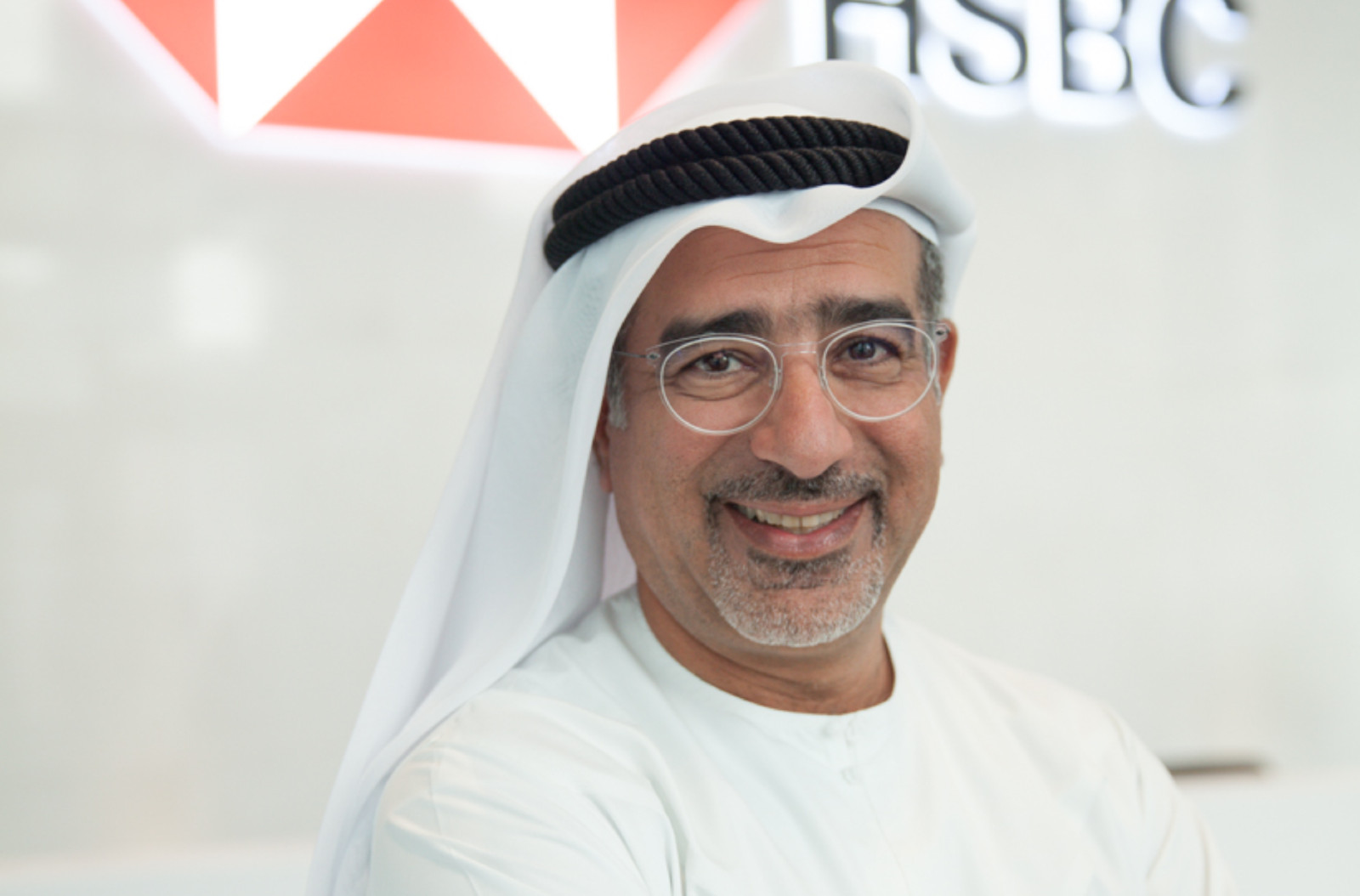
By Abdulfattah Sharaf
(DUBAI) – Global climate meetings held in Sharm El Sheikh, Egypt over the last two weeks have been about far more than officials, scientists and advisers from governments around the world gathering to restate national net zero targets.
Based on the hundreds of meetings my colleagues and I had with clients, policymakers, investors and entrepreneurs, the talks of the past two weeks have been about the actions being taken now, and the huge ambition that exists, to accelerate investments to achieve a carbon neutral economic future.
Whether from the perspective of the changes needed to keep global warming below 1.5°C, the funding frameworks needed to promote and support technological innovations, or the investment needed to be channeled into adaptation, the conversations were clear: the transition of existing models of economics, business and finance must happen with increasing urgency.
This intense focus at COP27 on the details needed to achieve the transition to a lower carbon economic model has set an unmistakable tone for next year’s COP28 talks that will be held in my home country, the UAE.
And that tone was struck precisely because there was a substantial business contingent at what were the world’s best-attended climate talks to date.
Executives didn’t turn up just to be visible. They turned up because they saw an unbeatable opportunity to meet with the partners who can turn business models of the past into the success stories of the future.
Not a single conversation my colleagues and I had was with an executive planning to go out of business. Our meetings were all about growth, expansion and how companies can gain access to funds in the tns of USD that globally will be flowing into net zero transition for decades to come.
That gives me great confidence in our own pledge as a bank to help the carbon-intensive industries of today invest to create the green business models of the future.
Not that it is going to be easy.
New technologies, new business models or new commercial structures will often fall outside traditional banking risk models.
That’s why HSBC is creating new financial partnerships to fill the gap for projects which fall outside the remit of traditional sources of finance and to focus them in markets with significant infrastructure development needs.
Renewable energy, energy storage, water and waste treatment and sustainable transportation are of great interest, as is the circular economy.
We’ve also made transformational changes across the bank to deliver on our climate strategy and targets.
We’ve committed to aligning the financed emissions from our portfolio to net zero by 2050 or sooner — and we know this can be achieved only in partnership with our customers.
So we’ve set 2030 targets for emissions reduction in different sectors, focusing on the heaviest emitters first.
By working with clients to develop transition plans, we will understand, sector by sector and client by client, how to reach net zero by 2050.
And as our conversations at COP27 made crystal clear, this is an area in which our clients expect us to lead and to be there to support them on their own journeys — to COP28 and beyond.
Abdulfattah Sharaf (LinkedIn) is the CEO of HSBC UAE and head of international markets. HSBC’s column on Enterprise appears every second Monday.
LEGISLATION WATCH
House gives initial approval to contractor compensation bill

MPs are giving contractors a break, approving in principle yesterday amendments that would allow builders who have suffered losses on state projects due to recent economic reforms to receive compensation from the government.
Widening the scope: A 2017 law — which was originally drafted for economic reforms undertaken between March and December 2016 — will be extended to cover all periods of reform. That means a contractor impacted by the impact of year’s EGP float on its work on a state project will be able to file a compensation claim. The bill will set up a designated committee to assess claims, Parliamentary Affairs Minister Alaa El Din Fouad said. Contractors who have their complaints rejected would be able to resort to courts to ask for compensation, he said. Senators approved the bill last month.
What’s next: House Speaker Hanafi El Gebali said the bill will be up for a final approval vote in an upcoming session. If passed, it will be signed into law by President El Sisi.
ALSO GETTING A NOD- MPs also approved in principle a law restructuring Al Azhar. The three-article bill would put Al Azhar’s teachers on an equal footing with their counterparts in public schools in terms of employment, promotion, salaries, bonuses and incentives. A final approval of the bill will be postponed to an upcoming session.
LAST NIGHT’S TALK SHOWS
It was a mixed bag on talk shows yesterday: Leading the coverage was the final agreement at COP27, the “historic” handshake between El Sisi and Erdogan at the World Cup, and Qatar’s defeat to Ecuador in the opening game of the tournament.
COP wrap: In an interview on Al Hayah Al Youm (watch, runtime: 15:12), Egypt’s chief negotiator, Amb. Mohamed Nasr, recapped some of the key sticking points to sealing a climate agreement at COP27 and highlighted the achievement of finally bringing developed and developing countries together on loss and damage. A transitional committee will work out the details on the loss and damage fund agreed at the summit, including who should pay into the fund and which countries would benefit from it among other aspects, Foreign Ministry spokesman Ahmed Abu Zeid told Ala Mas’ouleety (watch, runtime: 17:24). He said Egypt will continue to follow up on progress until it hands the presidency over to the UAE for COP28 next year.
That handshake: President El Sisi’s meeting with Erdogan in Doha yesterday was greeted with enthusiasm by the talk shows. Ala Mas’ouleety’s firebrand talk show host Ahmed Moussa expressed his glee about members of the Muslim Brotherhood crying at the site of the two leaders shaking hands (watch, runtime: 4:19) while Kelma Akhira’s Lamees El Hadidi described it as the “most important picture of the opening ceremony” (watch, runtime: 4:02). “Politics are never absent,” she said, in reference to the first handshake between the duo in over nine years. She asks the big question: “Are we talking about a breakthrough in relations [between Egypt and Turkey] under Qatari support?” (watch, runtime: 2:47). The handshake is also getting coverage from Masaa DMC (watch, runtime: 3:04) and Al Hayah Al Youm (watch, runtime: 5:13).
The World Cup opening ceremony and Qatar’s 2-0 defeat to Ecuador got coverage: El Hadidi (watch, runtime: 2:25) and Al Hayah Al Youm (watch, runtime: 10:25) covered the pre-match performance which featured US actor Morgan Freeman and K-pop star Jungkook alongside Qatari singer Fahad Al Kubais. Meanwhile, Moussa vented about VAR disallowing Ecuador’s opening goal (and BeinSports for not giving it more attention) (watch, runtime: 3:55). Masaa DMC also took note of Qatar’s disappointing loss (watch, runtime: 8:04).
Also getting attention on the talk shows last night:
- A wage hike for the private sector? A decision to raise the minimum wage to EGP 3k for private-sector workers could be announced soon if an agreement is reached with industries in the private sector, Supreme Council for Wages member Magdy Badawy told Masaa DMC (watch, runtime: 11:06). Civil servants and employees at state-owned enterprises saw the minimum wage rise to EGP 3k per month by the government starting this month in response to rising inflation.
EGYPT IN THE NEWS
Dominating the foreign press this morning: The COP27 celebration / post-mortem (depending on who you’re talking to and which part of the world they’re from). The Western press is being fairly even-handed with its post-summit analysis, giving equal coverage to the breakthrough agreement on loss and damage and the lack of progress on reducing emissions. (AP | Reuters | Bloomberg | FT | NYT | Washington Post)
Egypt isn’t escaping criticism as the foreign journos leave Sharm: AFP is out with a piece suggesting that Egypt failed to be a neutral broker in the talks, quoting France’s top climate negotiator who alleges that the COP27 Presidency’s text was influenced by the fossil fuel industry. Meanwhile, an opinion piece in the Guardian concludes that the constant focus on human rights means that the summit did little to improve Egypt’s international reputation.
Also in the foreign press: The Wall Street Journal covers the electricity-saving measures the government is implementing in efforts to boost gas exports to Europe.
PLANET FINANCE
Investors are storming back into high-yield emerging-market debt, pushing down the risk premium over high-grade debt at the quickest rate since June 2005, according to JPMorgan data picked up by Bloomberg. Bonds issued by countries that only a few months ago were thought to be careering towards default are now being hoovered up by yield-hungry investors as markets price in easier financial conditions on the back of slowing US inflation. “Cheaper high-yield emerging-market bonds do look more attractive relative to investment grade,” one strategist told the news outlet. A bounce in commodity prices, especially in oil, could also “generate greater cash flow and lower the chance of any sovereign default in the near term,” he said.
A eurozone recession might not be as bad as originally feared, according to some economists who are now revising earlier predictions due to mild weather, lower energy prices, and large amounts of fiscal support, the Financial Times reports. A number of analysts, including at Goldman Sachs and Berenberg Bank, now expect the euro area to suffer a shallower recession. “Recession in the eurozone is not likely to be as deep as had been feared,” said Susannah Streeter of asset manager Hargreaves Lansdown. “The bloc is set to avoid a full-blown energy crisis this winter.”
FTX latest: The bankrupt cryptocurrency exchange owes its 50 biggest creditors USD 3.1 bn, according to new court filings. The company’s liabilities are thought to be in excess of USD 10 bn and may have as many as 1 mn creditors. (Reuters | Financial Times)
|
|
EGX30 |
12,524 |
+0.1% (YTD: +4.8%) |
|
|
USD (CBE) |
Buy 24.46 |
Sell 24.54 |
|
|
USD at CIB |
Buy 24.46 |
Sell 24.52 |
|
|
Interest rates CBE |
13.25% deposit |
14.25% lending |
|
|
Tadawul |
11,053 |
-0.9% (YTD: -2.0%) |
|
|
ADX |
10,466 |
+0.4% (YTD: +23.3%) |
|
|
DFM |
3,352 |
+0.6% (YTD: +4.9%) |
|
|
S&P 500 |
3,965 |
+0.5% (YTD: -16.8%) |
|
|
FTSE 100 |
7,386 |
+0.5% (YTD: 0.0%) |
|
|
Euro Stoxx 50 |
3,924 |
+1.2% (YTD: -8.7%) |
|
|
Brent crude |
USD 87.62 |
-2.4% |
|
|
Natural gas (Nymex) |
USD 6.30 |
-1.0% |
|
|
Gold |
USD 1,769.00 |
-0.5% |
|
|
BTC |
USD 16,249 |
-2.7% (YTD: -64.3%) |
THE CLOSING BELL-
The EGX30 rose 0.1% at yesterday’s close on turnover of EGP 1.44 bn (18.3% above the 90-day average). Regional investors were net sellers. The index is up 4.8% YTD.
In the green: Mopco (+3.6%), Elsewedy Electric (+2.7%) and Credit Agricole Egypt (+2.5%).
In the red: Cleopatra Hospitals (-4.1%), e-Finance (-2.4%) and Telecom Egypt (-2.4%).
Major Asian benchmarks are in the red this morning, and futures suggest both shares across Western Europe (with the exception of France) and on Wall Street will follow suit later today.
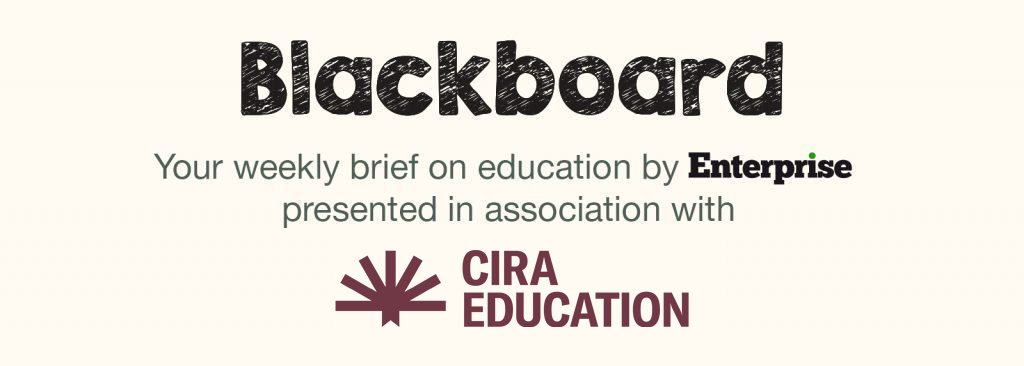

How leadership- and service-oriented residential school Manara plans to weave itself into Egypt’s educational fabric: Six years ago, Naguib Samih Sawiris put his eyes on realizing his dream to give talented students the chance to make a difference in their communities by providing them with a holistic world-class education. Inspired by his grandparents and longtime philanthropists, Onsi and Yousriya Sawiris, he turned that vision into a reality with the introduction of Manara School in El Gouna. The school, whose launch was announced last month, wants to offer its top-tier education to a wide segment of society, starting from the families and students who can afford the tuition fees and including less-privileged students through need-based scholarships, offered with the support of two nonprofit foundations. Manara School is set to open its doors for its first class in 2023, with the application process kicking off next month.
Enterprise sat down with Manara School Head Peter Saliba to discuss the school’s plans and goals, how Manara will shape its graduates to serve Egypt’s future, the idea behind opening its doors to students regardless of their socioeconomic background, and the choice to make Manara residential — rather than boarding — school. Edited excerpts from our conversation:
Manara is a school “for the nation,” not just the El Gouna community, with a goal to bring in students from all governorates across the country and not restraining itself to those in a specific area, Saliba told Enterprise. “There isn’t another school in Egypt like this one. No other schools have the class sizes we’ll have, the residential curriculum we’ve developed, or a focus on developing leadership skills like us,” he said. Manara plans to have an average class size of fifteen students, according to a statement (pdf).
There is, however, a detailed admissions process, which is designed to bring the best talent to the school, he explains. The process requires students to submit supporting documents on their academic performance, teacher recommendations, and an essay or video along with a standard application form. Eligible applicants who make it through the first cut will then sit for tests to assess quantitative and qualitative reasoning and leadership skills. The following stage sees applicants and their families invited to the school’s campus for personal interviews.
The school will apply the Advanced Placement (AP) curriculum, opting for the American program over the British curriculum thanks to the breadth and wider range of courses it offers, Saliba told us. “It also allows space and time to execute the residential part of the curriculum,” he adds, giving students the chance to do other things. “For teenagers, when you give them choice, that broadens their experience,” he said.
But Manara isn’t looking to copy a certain model. Instead, it’s bringing together the best practices in partner schools to make it work for Egypt. “What we’re really doing is choosing what we believe to be the best parts of the six or seven schools that we’re working with and bringing them together,” he said. The models at UK’s Eton or the US’ Phillips Exeter might be very contextually relevant to the US or UK, but might not be a good fit for Egypt, he adds.
It’s all about the quality of teachers: The curriculum choice, while important, is not as essential as the quality of teachers delivering the material. “For me, whether it’s the AP system or the British system, the question I’d be asking [as a parent] would be the quality of the teacher. That’s the most important thing,” he said.
Fundamentally, the school is looking to fill some gaps in Egypt’s traditional education offerings. Manara is doing this by relying on a skills-based curriculum, rather than one that is content-based. “I think Egypt has set its sights to become more skill-based. It’s not there yet, but they’re making their way,” he said, adding that the issue is one that “everyone is trying to address.”
Labor market impact is a key goal: Manara wants its graduates to be impactful in the country’s labor market, and is prioritizing honing skills that are critical for the workforce, including being able to both lead and be part of a team, operate in diverse environments, and communicate effectively. “These are all the fundamental underpinnings for our school,” he said. The school isn’t focused on turning out graduates “centered on one particular industry or area,” he noted.
Choosing to make Manara a residential school is also geared toward building these key skills: Residential schools offer a learning journey for both the students and teachers, with the chance to cultivate deep relationships that “provide the best teaching environment,” Saliba said. Students in residential schools are able to develop independence, teamwork abilities, and a sense of community more than those at day schools, he said.
The school is focused on grades 8-12, rather than pre-K-12, because teenage years are when students’ development peaks, Saliba said. “We focused on these years specifically because it’s where we think we can make the most difference,”' he said. The school decided against expanding to earlier grades, since it would make the school’s mission too broad to deliver the impact it wants.
Manara chose El Gouna to house its campus as the Red Sea resort town is emerging as an educational hub, being home to several educational institutes, including an international school and other facilities, which “was part of the attraction for us,” Saliba said. El Gouna’s safe environment and reliable infrastructure were also key factors in deciding on the school’s location.
The school’s tuition fees haven’t yet been announced, but accepted students can apply for financial aid or a scholarship. This is an “exciting” model that applies the school’s vision “to provide an outstanding education regardless of financial background,” Saliba said. US-based nonprofit The Friends of Egyptian Leadership Academy and Swiss-based Egyptian Educational Foundation will provide the scholarships, Saliba said, stressing that the foundations do not have any involvement in the school’s admissions process.
Manara takes pride in having philanthropists, rather than investors, backing the school financially. “We have people who are giving money, time and energy to create part of the educational fabric for Egypt. They’re not doing it to look for a financial return, they’re doing it to invest in the future of Egypt,” he said. Manara’s main philanthropist backer is the Sawiris family, who Saliba describes as the “driving force” behind the school.
Manara sees its model inspiring others: The school sees itself as contributing to boosting the diversity of educational options accessible for Egyptians. “I believe once we’re on the way, after two to three years, other like-minded residential high schools will pop up in Egypt,” he said. “I see Egypt recapturing its educational prominence in this part of the world and we’re going to be part of it. That’s the exciting part of it,” he said.
CALENDAR
NOVEMBER
6-18 November (Sunday-Friday): Egypt will host COP27 in Sharm El Sheikh.
13-22 November (Sunday-Tuesday): Cairo International Film Festival (CIFF).
20 November (Sunday): House of Representatives is back in session.
20 November-18 December (Sunday-Sunday): 2022 Fifa World Cup, Qatar.
22 November- 23 November (Tuesday-Wednesday): The Fingerprint Summit will be held at the Nile Ritz Carlton Hotel.
27 November (Sunday): Senate in session.
27-28 November (Sunday-Monday): The first edition of the Egypt Media Forum.
27-30 November (Sunday-Wednesday): Cairo ICT and Pafix, Egypt International Exhibition Center, New Cairo.
29 November – 6 December (Tuesday-Tuesday): US and Russia to hold talks on resuming mutual nuclear inspections in Cairo.
DECEMBER
1 December (Thursday): Sphinx International Airport will begin operating international flights.
1 December (Thursday): Contractors to break ground on Egypt-Saudi interconnection project.
3 December (Saturday): Dior Men’s pre-fall collection show in Giza.
5-8 December (Monday-Thursday): QS Reimagine Education Awards and Conference, multiple locations.
6 December (Tuesday): Enterprise Climate X Forum, Grand Egyptian Museum.
7 December (Wednesday): Euromoney Egypt 2022 conference
10 December (Saturday): The TriFactory’s Pyramids Half Marathon.
10-12 December (Saturday-Monday): The 2nd edition of the Nebu Expo for Gold and Jewelry kicks off.
13-14 December (Tuesday-Wednesday): Federal Reserve interest rate meeting.
13-15 December (Tuesday-Thursday): US-Africa Leaders Summit.
15 December (Thursday): European Central Bank monetary policy meeting.
22 December (Thursday): Central Bank of Egypt’s Monetary Policy Committee meeting.
December: The Sixth of October dry port will begin operations.
December: Egyptian Automotive Summit.
December: Egypt to expand Sudan electricity link capacity to 300 MW.
December: Chinese President Xi Jinping visit to Saudi Arabia
JANUARY 2023
January: EGX-listed companies and non-bank lenders will submit ESG reports for the first time.
January: Fuel pricing committee meets to decide quarterly fuel prices.
January: Infinity + Africa Finance Corporation to close acquisition of Lekela Power.
1 January (Sunday): Use of Nafeza becomes compulsory for air freight.
1 January (Sunday): Residential electricity bills are set to rise as per the government’s six-year roadmap (pdf) to restructure electricity prices by 2025.
7 January (Saturday): Coptic Christmas.
24 January-6 February: The 54th Cairo International Book Fair, Egypt International Exhibition Center
25 January (Wednesday): 25 January revolution anniversary / Police Day.
26 January (Thursday): National holiday in observance of 25 January revolution anniversary / Police Day.
30 January-1 February (Monday-Wednesday): CI Capital’s Annual MENA Investor Conference 2023, Cairo, Egypt.
FEBRUARY 2023
11 February (Saturday): Second semester of 2022-2023 academic year begins for public universities.
13-15 February (Monday-Wednesday): The Egypt Petroleum Show (Egyps), Egypt International Exhibition Center, Cairo.
23-27 February (Thursday-Monday): Annual Business Women of Egypt’s Women for Success conference.
MARCH 2023
March: 4Q2022 earnings season.
23 March (Wednesday): First day of Ramadan (TBC). Maghreb will be at 6:08pm CLT.
APRIL 2023
1 April (Saturday): Deadline for banks to establish sustainability unit.
17 April (Monday): Sham El Nessim.
22 April (Saturday): Eid El Fitr (TBC).
25 April (Tuesday): Sinai Liberation Day.
27 April (Thursday): National holiday in observance of Sinai Liberation Day (TBC).
Late April – 15 May: 1Q2023 earnings season.
MAY 2023
1 May (Monday): Labor Day.
4 May (Thursday) National holiday in observance of Labor Day (TBC).
22-26 May (Monday-Friday): Egypt will host the African Development Bank (AfDB) annual meetings in Sharm El Sheikh.
JUNE 2023
19-21 June (Monday-Wednesday) Egypt Infrastructure and Water Expo debuts at the Egypt International Exhibition Center.
28 June-2 July (Wednesday-Sunday): Eid El Adha (TBC).
30 June (Friday): June 30 Revolution Day.
JULY 2023
18 July (Tuesday): Islamic New Year.
20 July (Thursday): National holiday in observance of Islamic New Year (TBC).
23 July (Sunday): Revolution Day.
27 July (Thursday): National holiday in observance of Revolution Day.
Late July-14 August: 2Q2023 earnings season.
SEPTEMBER 2023
26 September (Tuesday): Prophet Muhammad’s birthday (TBC).
28 September (Thursday): National holiday in observance of Prophet Muhammad’s birthday (TBC).
OCTOBER 2023
6 October (Friday): Armed Forces Day.
Late October-14 November: 3Q2023 earnings season.
EVENTS WITH NO SET DATE
2H 2022: The inauguration of the Grand Egyptian Museum.
2H 2022: IEF-IGU Ministerial Gas Forum, Egypt. Date + location TBA.
2H 2022: The government will have vaccinated 70% of the population.
3Q 2022: Ayady’s consumer financing arm, The Egyptian Company for Consumer Finance Services, to release its first financing product.
3Q 2022: Swvl to close acquisition of Urbvan Mobility.
End of December/early January: SFE’s pre-IPO fund to kick off roadshow.
4Q 2022: Electricity Ministry to tender six solar projects in Aswan Governorate.
4Q 2022: Raya Holding subsidiary Aman and Qalaa Holdings’ Taqa Arabia to launch their fintech company.
4Q 2022: Saudi Arabia’s Jamjoom Pharma to inaugurate its EGP 1 bn pharma factory in El Obour.
End of 2022: Decent Life first phase scheduled for completion.
End of 2022: e-Aswaaq’s tourism platform will complete the roll out of its ticketing and online booking portal across Egypt.
2023: Egypt will host the Asian Infrastructure Investment Bank’s Annual Meeting of the Board of Governors in 2023.
1Q 2023: Adnoc Distribution’s acquisition of 50% of TotalEnergies Egypt to close.
1Q 2023: Internal trade database to launch.
Enterprise is a daily publication of Enterprise Ventures LLC, an Egyptian limited liability company (commercial register 83594), and a subsidiary of Inktank Communications. Summaries are intended for guidance only and are provided on an as-is basis; kindly refer to the source article in its original language prior to undertaking any action. Neither Enterprise Ventures nor its staff assume any responsibility or liability for the accuracy of the information contained in this publication, whether in the form of summaries or analysis. © 2022 Enterprise Ventures LLC.
Enterprise is available without charge thanks to the generous support of HSBC Egypt (tax ID: 204-901-715), the leading corporate and retail lender in Egypt; EFG Hermes (tax ID: 200-178-385), the leading financial services corporation in frontier emerging markets; SODIC (tax ID: 212-168-002), a leading Egyptian real estate developer; SomaBay (tax ID: 204-903-300), our Red Sea holiday partner; Infinity (tax ID: 474-939-359), the ultimate way to power cities, industries, and homes directly from nature right here in Egypt; CIRA (tax ID: 200-069-608), the leading providers of K-12 and higher level education in Egypt; Orascom Construction (tax ID: 229-988-806), the leading construction and engineering company building infrastructure in Egypt and abroad; Moharram & Partners (tax ID: 616-112-459), the leading public policy and government affairs partner; Palm Hills Developments (tax ID: 432-737-014), a leading developer of commercial and residential properties; Mashreq (tax ID: 204-898-862), the MENA region’s leading homegrown personal and digital bank; Industrial Development Group (IDG) (tax ID:266-965-253), the leading builder of industrial parks in Egypt; Hassan Allam Properties (tax ID: 553-096-567), one of Egypt’s most prominent and leading builders; and Saleh, Barsoum & Abdel Aziz (tax ID: 220-002-827), the leading audit, tax and accounting firm in Egypt.
